P1170,P1171, P1172
Symptom: The CHECK ENGINE lamp (MIL) is on. Any other diagnostic trouble codes
(low fuel level, misfiring, oxygen sensor, pressure sensor)
Closed loop
Symptom of fault
The CHECK ENGINE lamp (MIL) is on. Any other diagnostic trouble codes
(low fuel level, misfiring, oxygen sensor, pressure sensor)
Conditions
|
•
|
Coolant temperature above
60°C
(140°F)
|
P1170: All-embracing DTC
P1171: Closed loop >25%% for more than 20 sec.
P1172: Closed loop <-25%% for more than 20 sec.
Diagnostic help
If the closed loop fault has arisen on account of low fuel level, this will be indicated by
diagnostic trouble code P1416 also being generated. Closed loop status can be ascertained
by means of the ISAT scan tool.
|
-
|
Select
"READ FUNCTIONS".
|
|
-
|
Select
"LAMBDA CONTROL".
|
Current closed loop status ±25%% will be displayed.
. Intermittent faults may occur as a result of
occasional short circuits and breaks in the wiring. Jiggle the leads and in-line connectors at
several places and in different directions to reveal faults in the wiring harness. Observe the
multimeter, ISAT scan tool or test lamp while carrying out this check.
Diagnostic procedure
1. Check additional diagnostic trouble codes in the Trionic
system
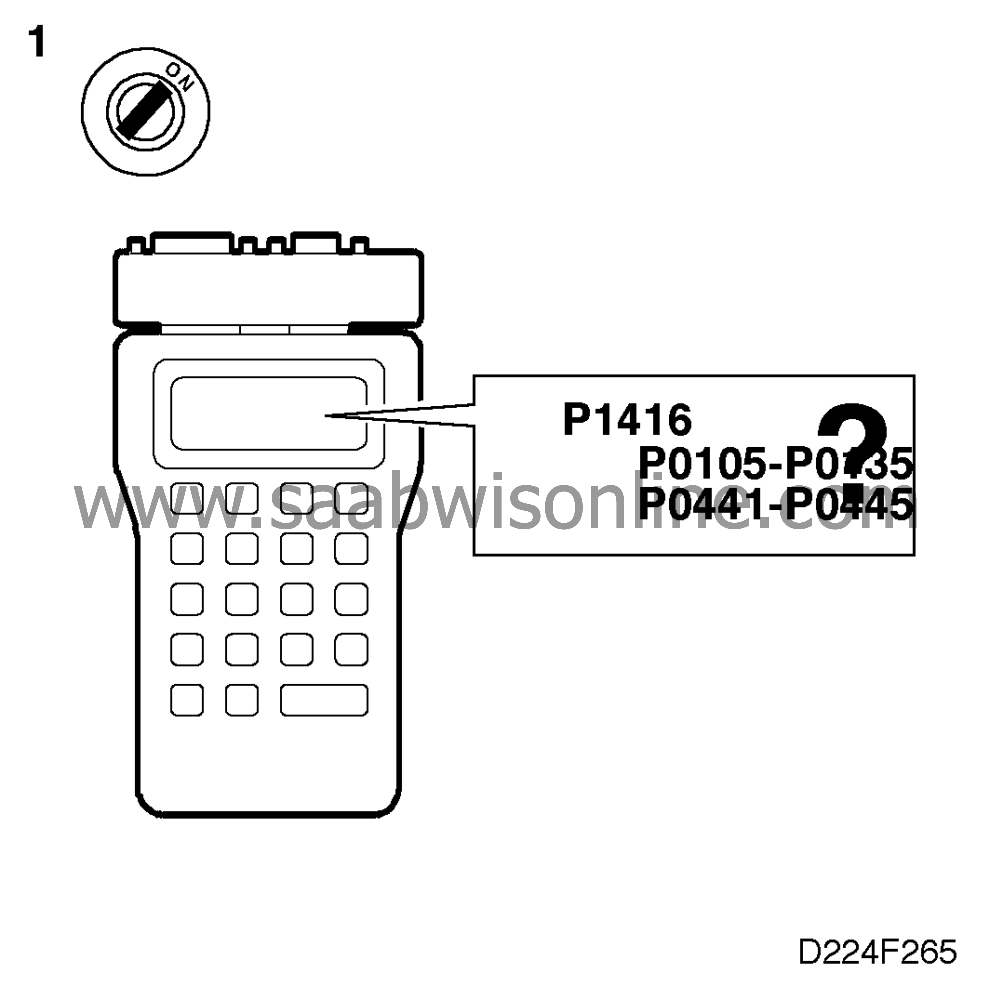
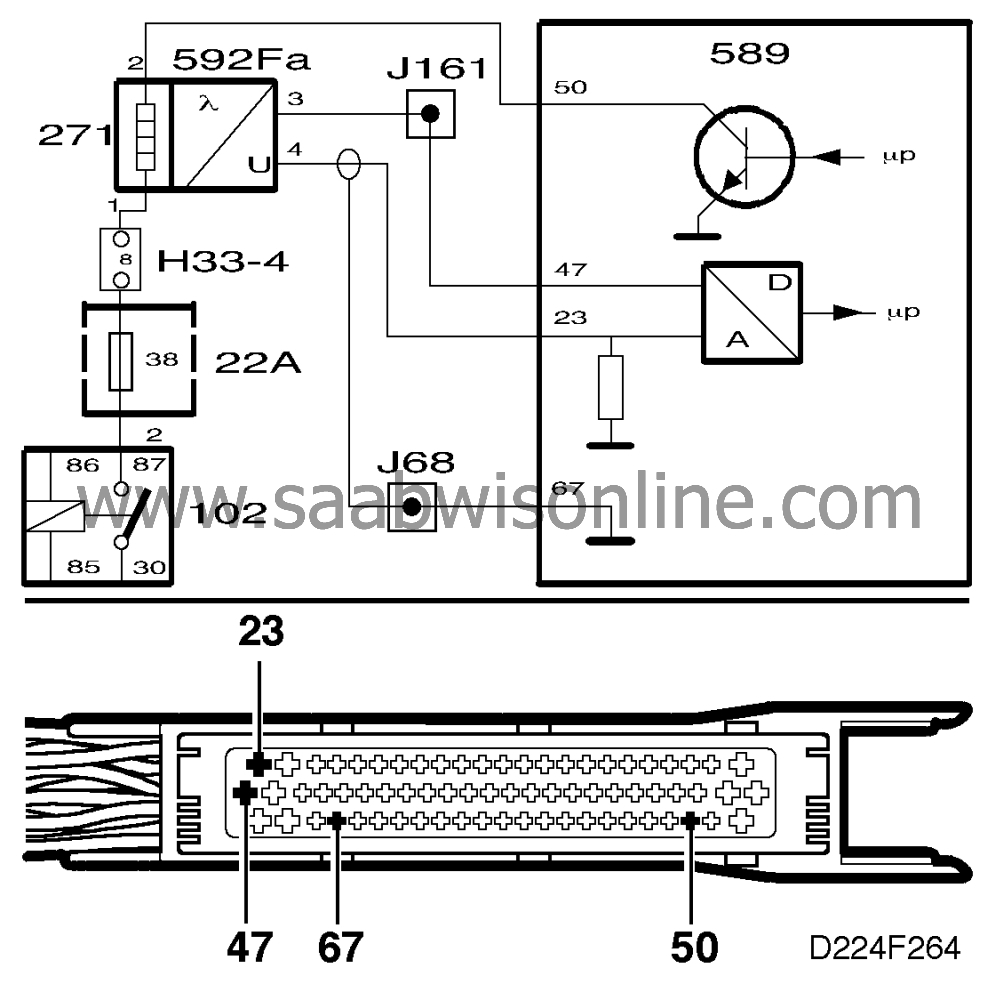
|
-
|
Obtain readouts of all diagnostic
trouble codes using the ISAT scan tool.
|
Are any of the above diagnostic trouble codes present?
Continue fault diagnosis for the relevant diagnostic trouble
code.
Continue with point 2.
|
Note
|
|
P1171 may be caused by misfiring.
|
2. Check for air leakage
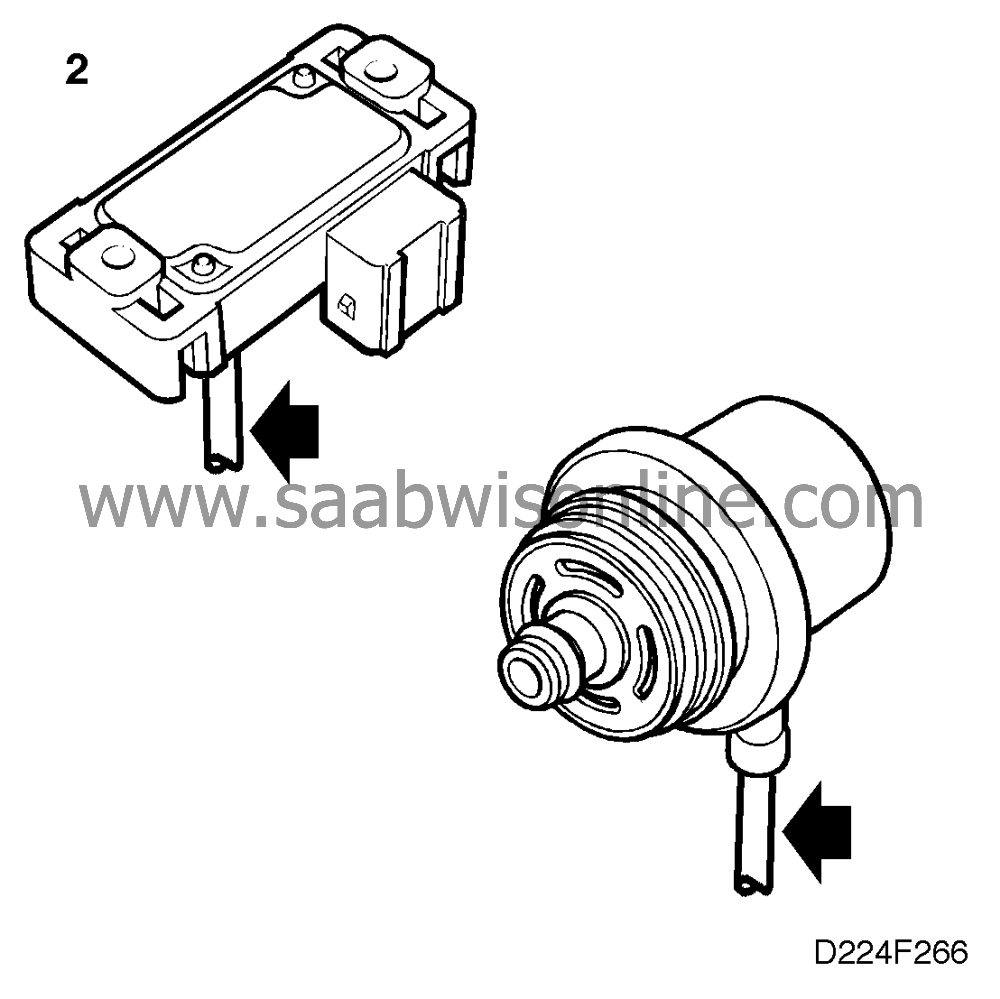
|
-
|
Check that no air leakage occurs at
the following points:
|
|
|
•
|
the hose between the pressure
sensor and intake manifold
|
|
|
•
|
the hose between the fuel pressure regulator and intake manifold
|
3. Check pressure sensor
operation
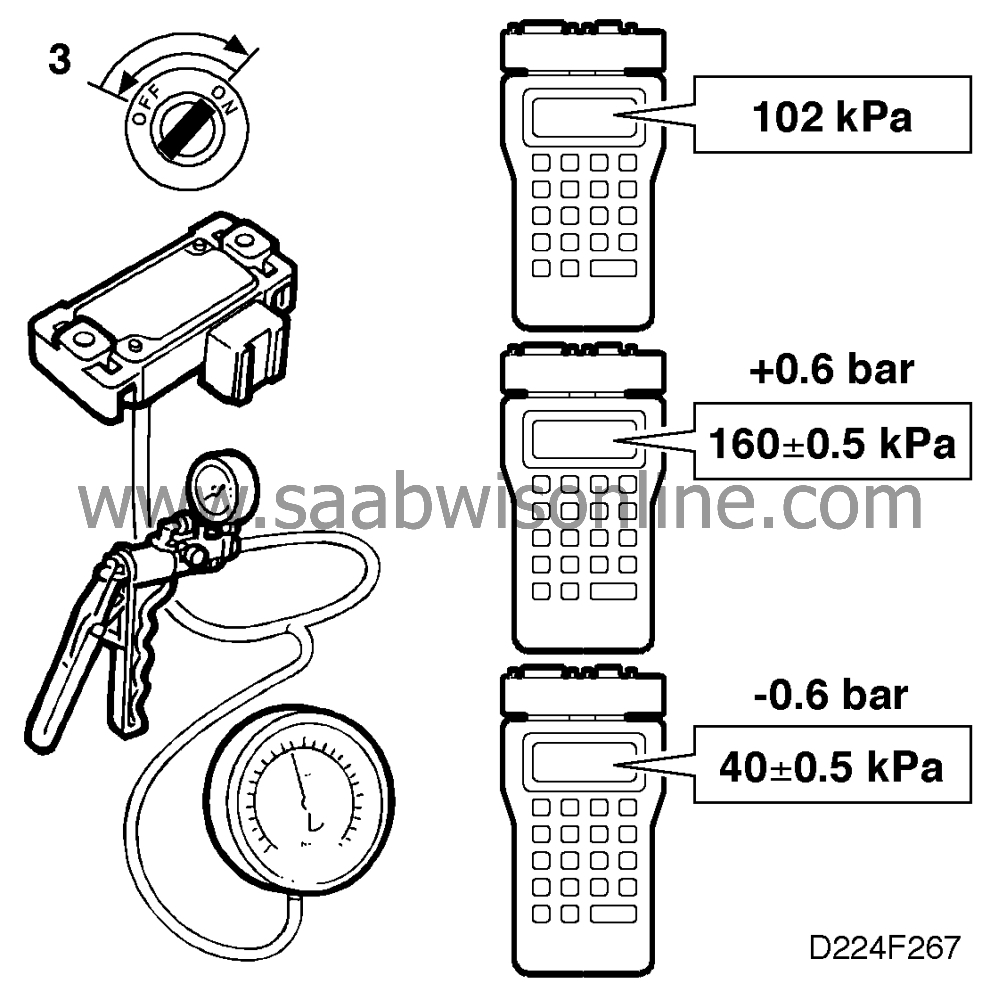
|
-
|
Turn the ignition switch to the ON
position and then back to the OFF position.
|
|
-
|
Connect an ISAT scan tool.
|
|
-
|
Select
"READ FUNCTIONS".
|
|
-
|
Select
"INTAKE PRESSURE".
|
The ISAT scan tool should show a reading of about 102 kPa (NOTE: the reading
is dependent on air pressure). First build up a pressure of 0.6 bar and then a create a vacuum
of -0.6 bar. Use a pressure gauge and a pressure/vacuum pump. The ISAT scan tool should
show 160±5 kPa and 40±5 (the ISAT scan tool may show somewhat lower
readings at high altitude).
The measurement is intended to detect any shift in the operating range of the pressure
sensor. The measurement is intended to detect any shift in the operating range of the
pressure sensor.
Are the readings OK?
Continue with point 4.
Change the pressure sensor and continue with point 6.
4. Check the front heated oxygen sensor's
electrical interface
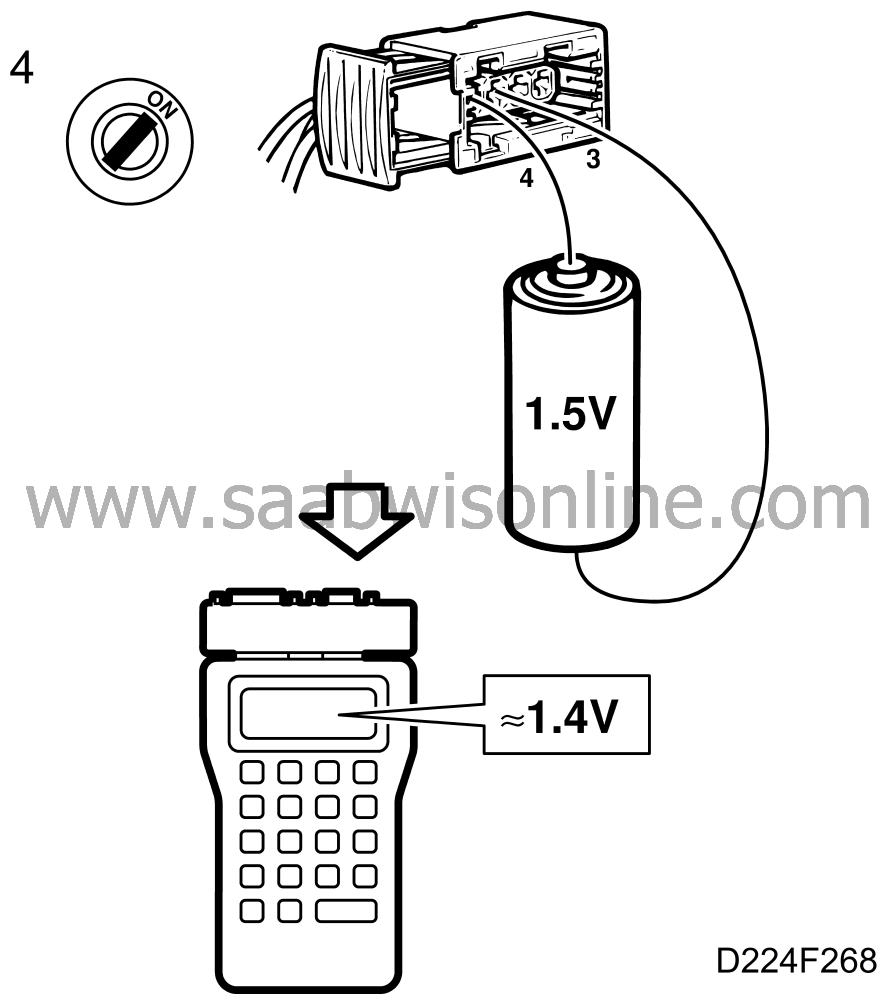
|
-
|
Unplug the oxygen sensor's
4-pin connector.
|
|
-
|
Replace the oxygen sensor with a
conventional 1.5 V dry battery in good condition.
|
|
-
|
Connect the battery's
positive (+) pole to pin 4 of the connector.
|
|
-
|
Connect the battery's
negative (-) pole to pin 3 of the connector.
|
|
-
|
Ignition switch in ON
position.
|
|
-
|
Connect an ISAT scan
tool.
|
|
-
|
Select
"READ FUNCTIONS".
|
|
-
|
Select
"OXY SENSOR FRONT".
|
The ISAT scan tool must show approx. 1.4 V.
Does the ISAT scan tool show about "1.4 V"?
Plug in the oxygen sensor and continue with point 5.
Check the leads between pin 4 of the connector and pin 23 of the control
module and between pin 3 of the connector and pin 47 of the control module for continuity and
shorting. Rectify as necessary. Then continue with point 6.
5. Check
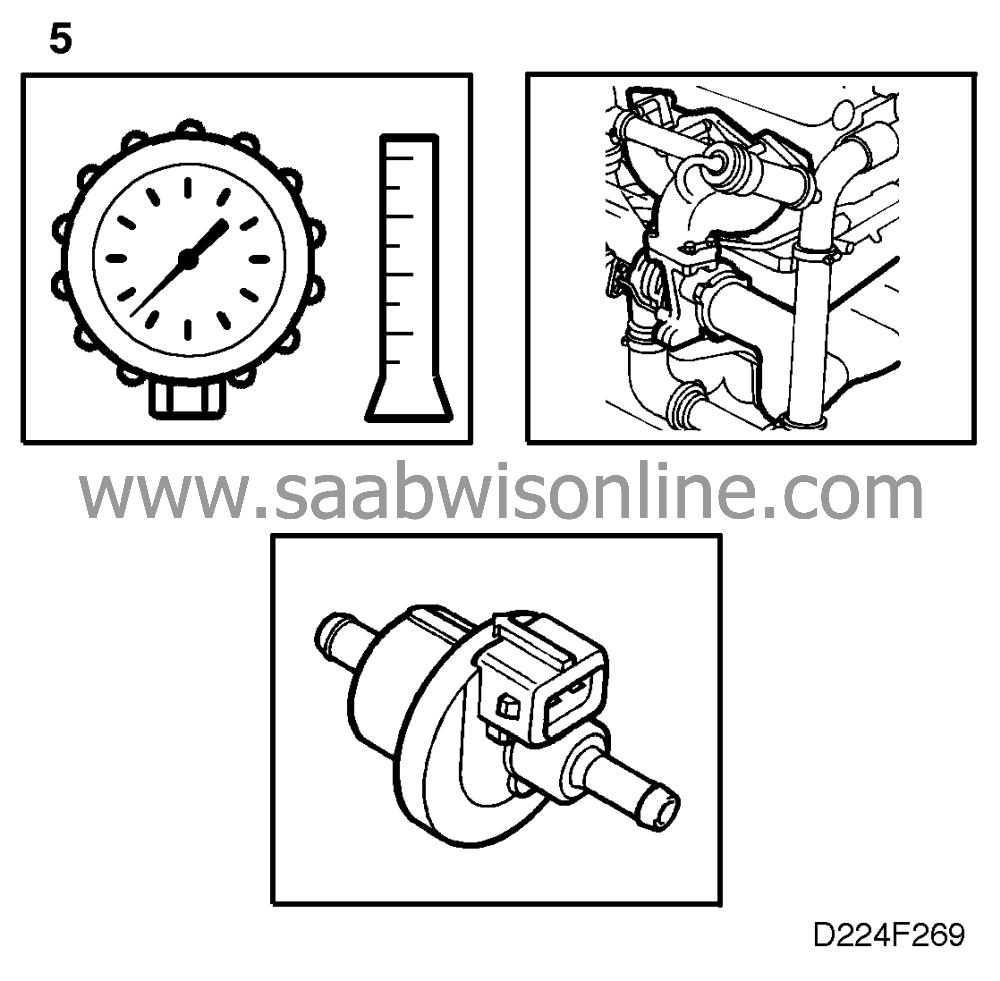
|
•
|
that the EVAP canister purge valve closes in the zero voltage state
|
|
•
|
that there is no air leakage in the exhaust system ahead of the front heated
oxygen sensor or its mounting
|
Is there a relevant cause of the fault?
Rectify the fault and proceed to point 6.
Change the front heated oxygen sensor and continue with point 6.
6. Final check
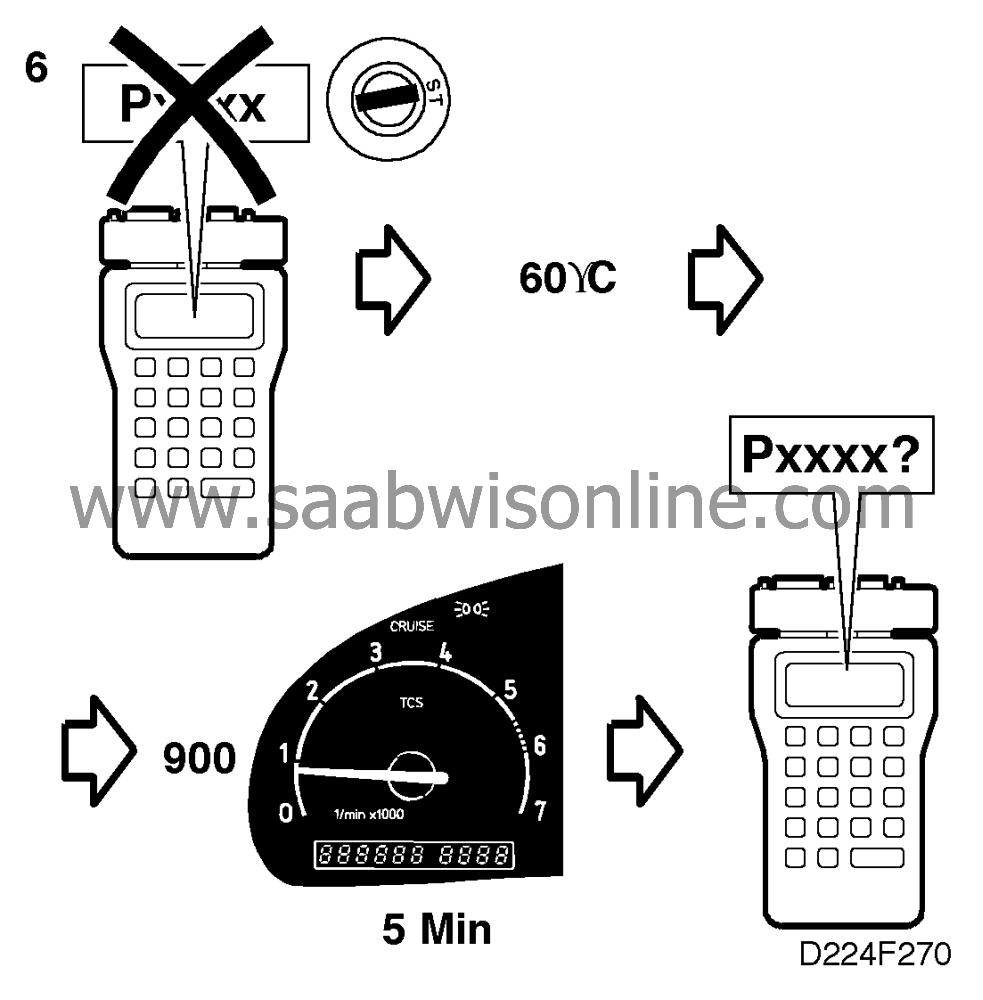
|
-
|
Clear the diagnostic trouble
code.
|
|
-
|
Perform a driving
cycle:
|
|
|
•
|
Start the engine and run it at idling
speed until the temperature of the coolant reaches 60°C (140°F)
|
|
|
•
|
Run the engine at idling speed for another 5
minutes.
|
|
-
|
Evaluation of driving cycle: Check
whether the diagnostic trouble code has recurred.
|
Has the diagnostic trouble code recurred?
Proceed to
 .
.
The remedial measure taken was correct.










